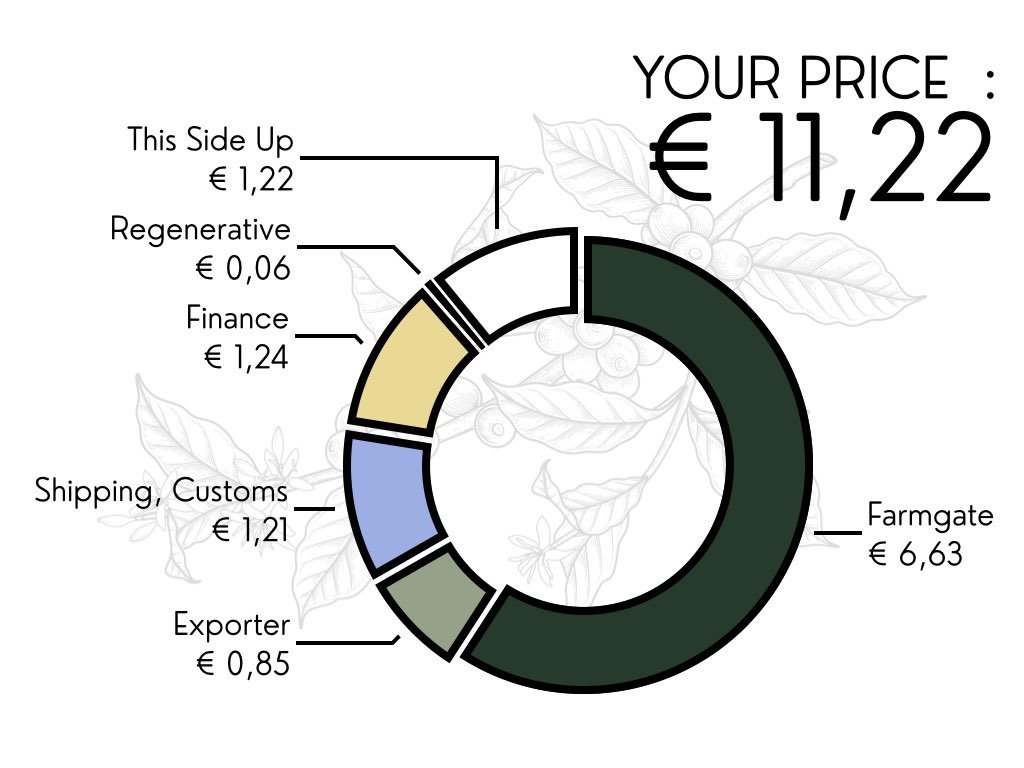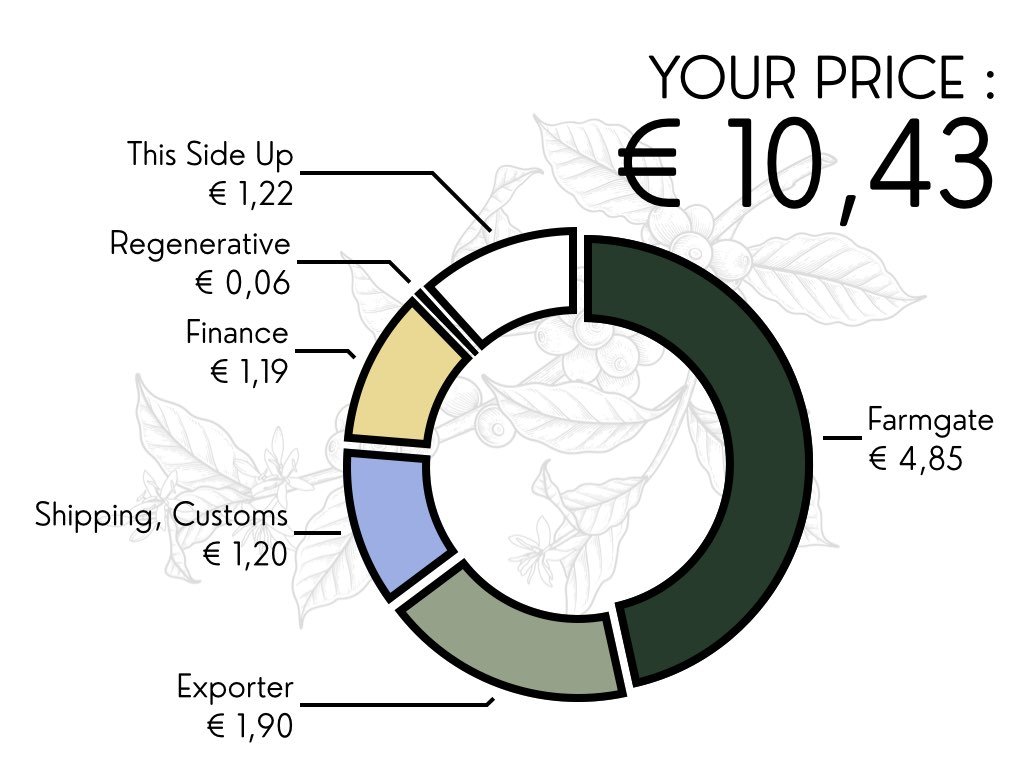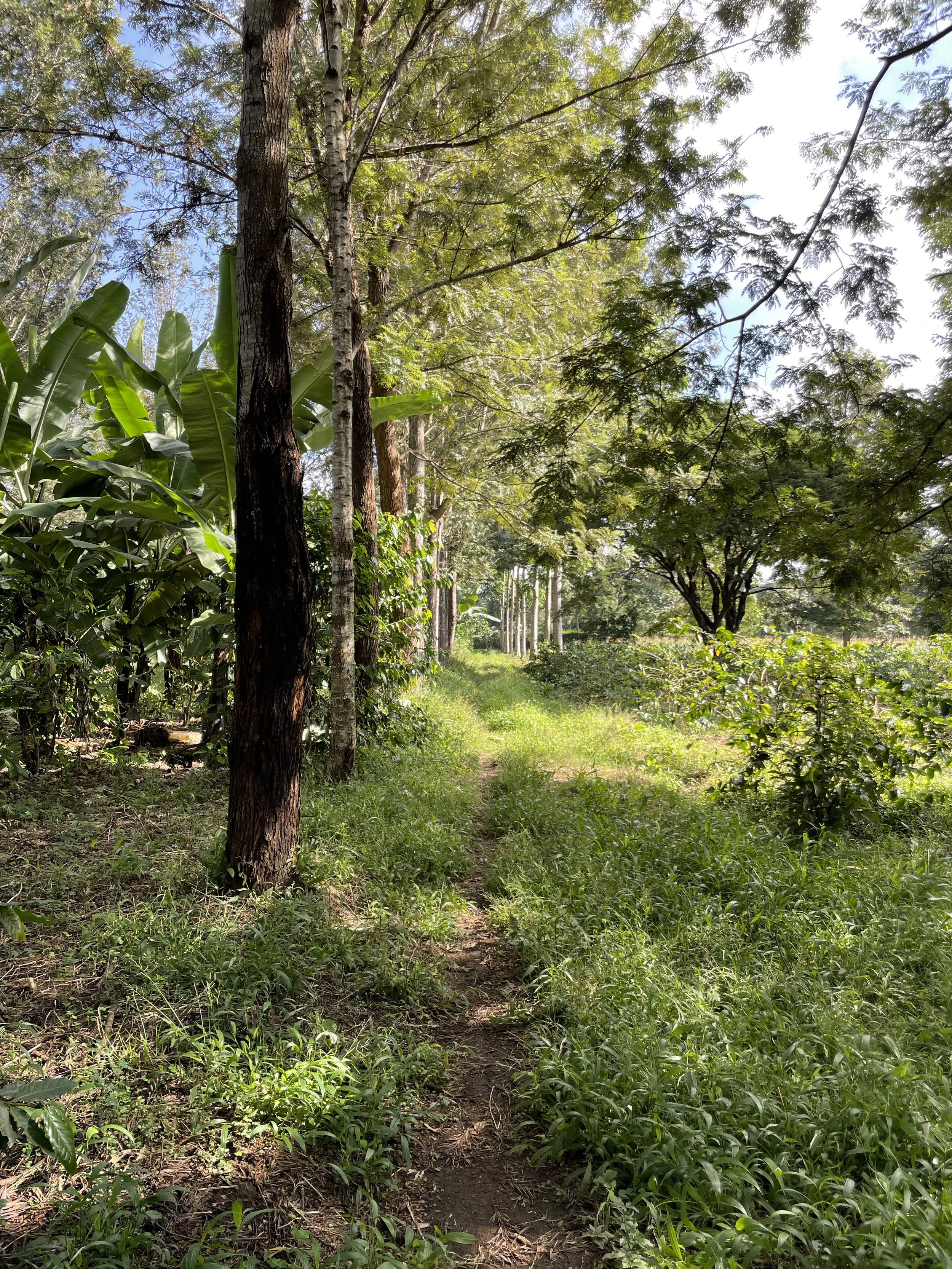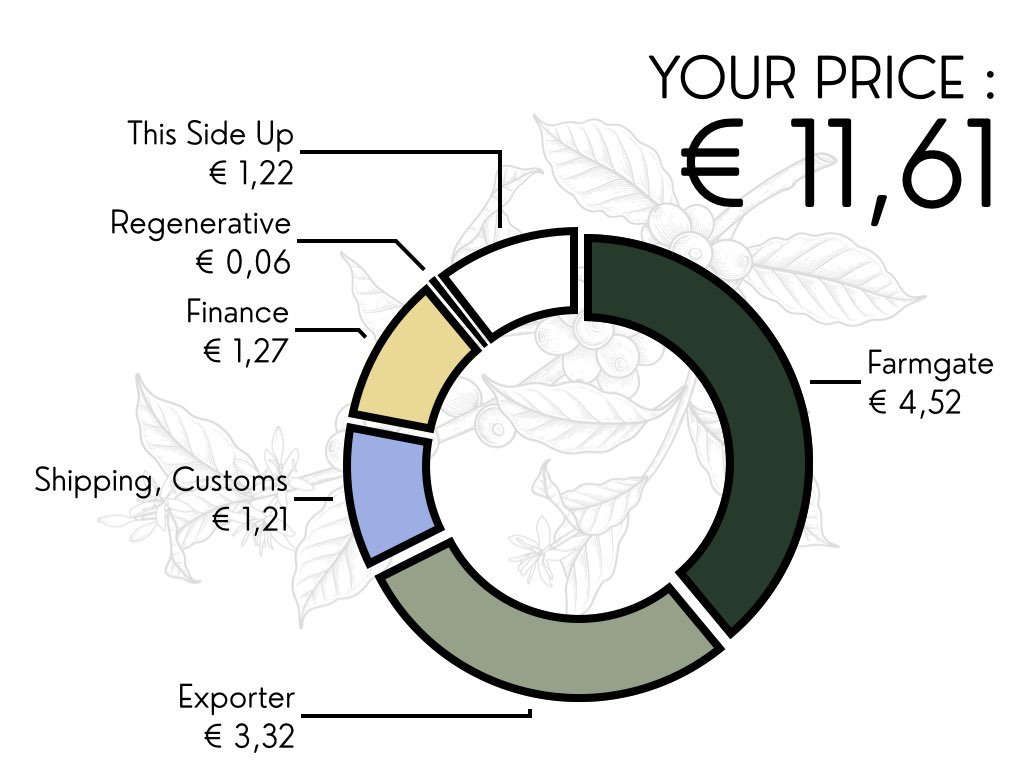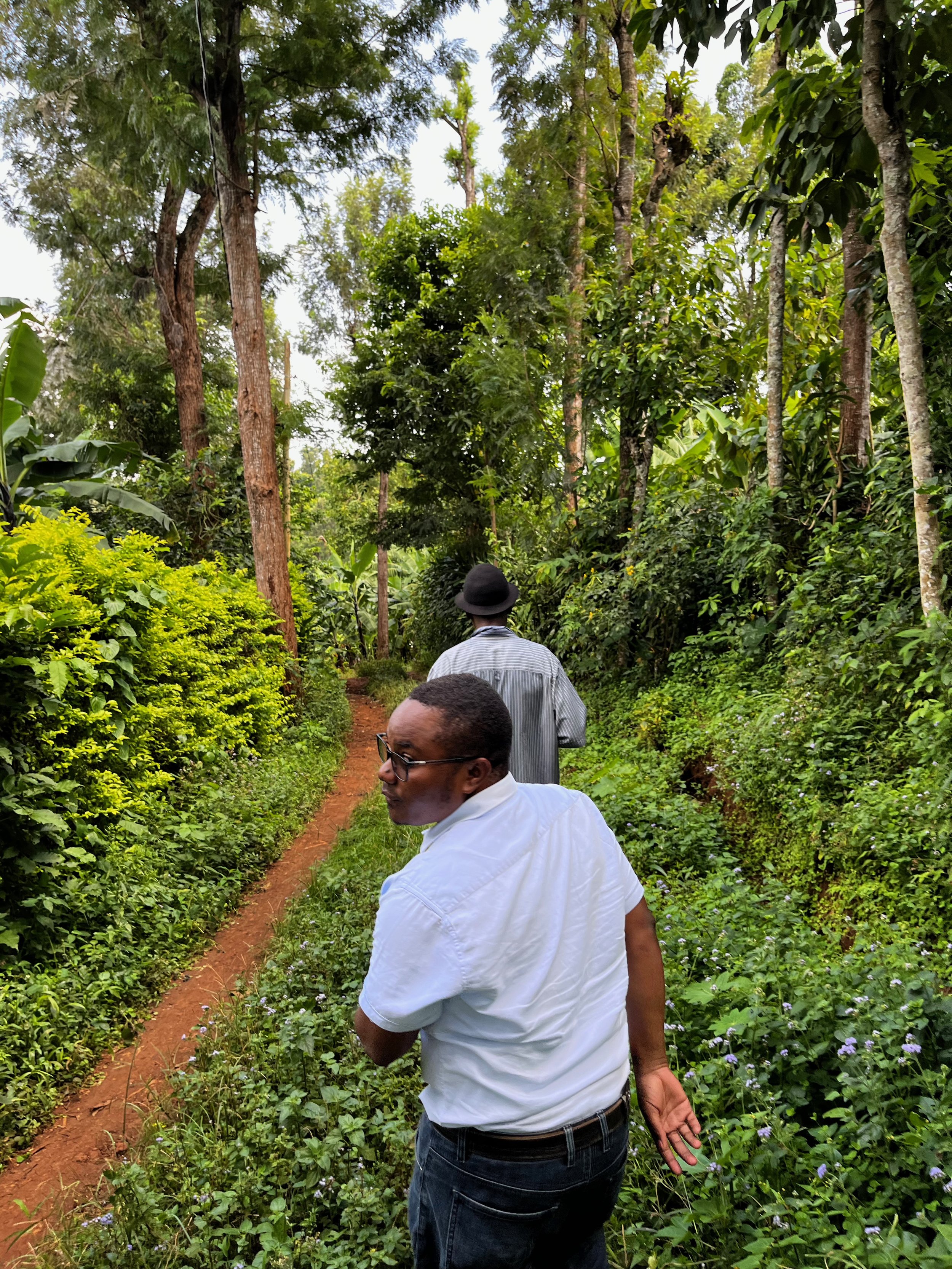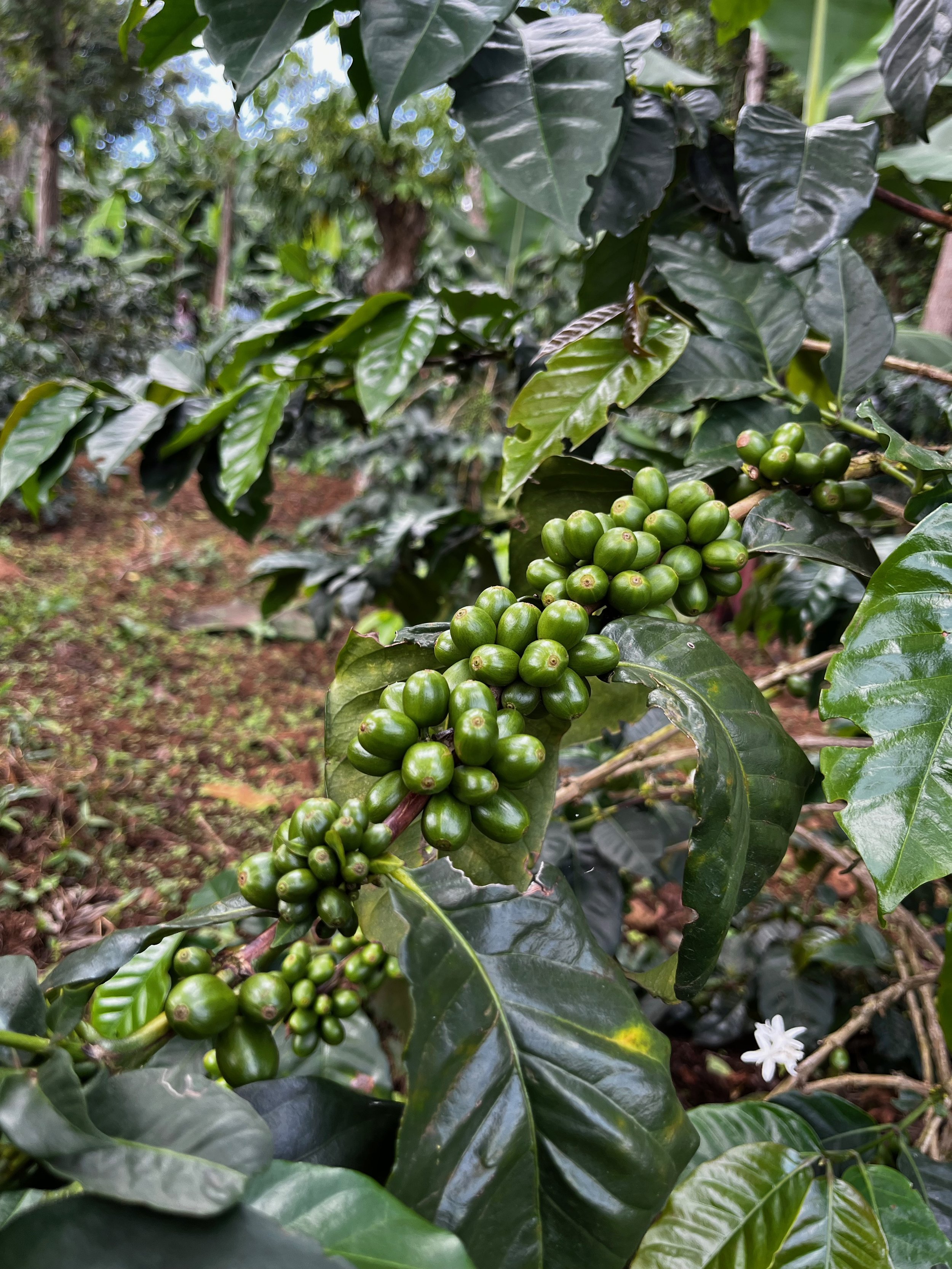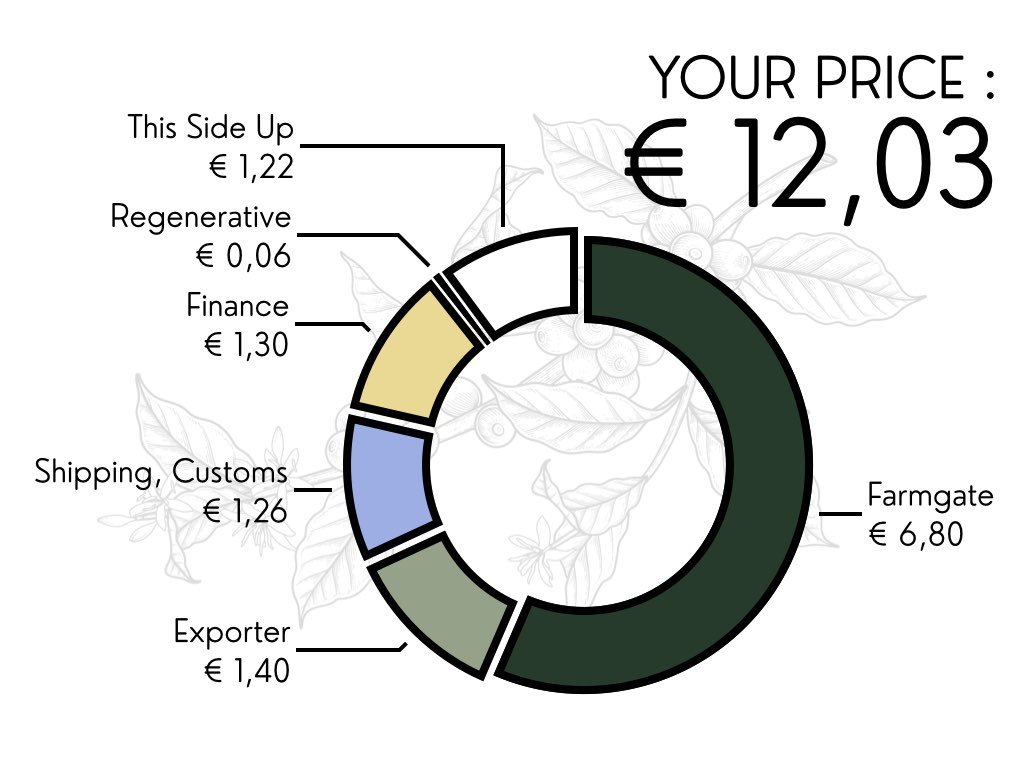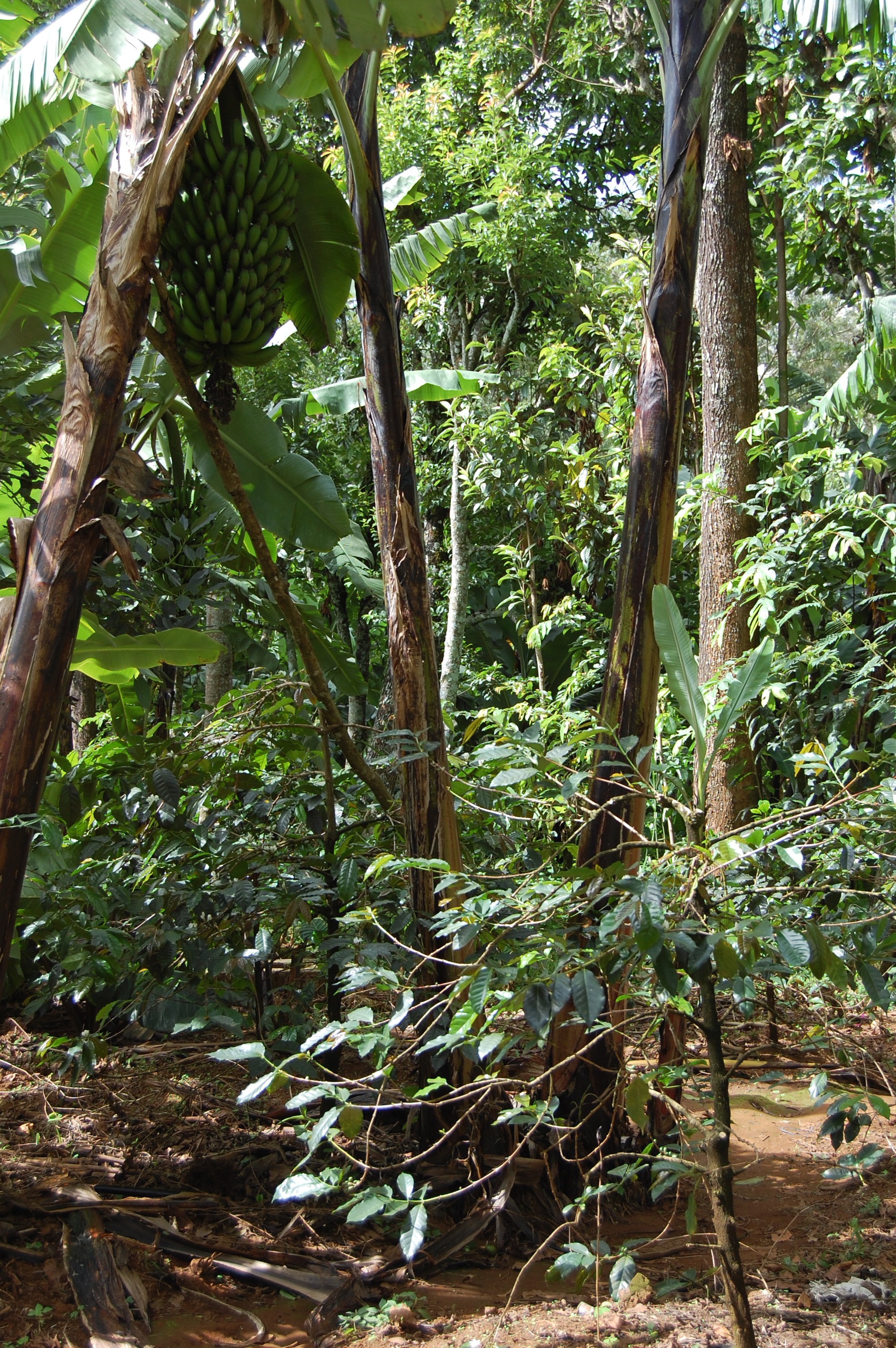‘ROOT’ING FOR A CHANGE
The story starts with Rebecca Trupin, half Tanzanian, half American meeting the Aranga coffee group in 2012. She was looking to learn more about successful coffee cooperatives in the neighborhood to help the farmers from her mother's village in Marangu. The Aranga were ready and willing to support this proposition of supporting their neighbours. Whilst this was happening, Rebecca also understood that Aranga was looking for buyers. So she was looking for a market that was interested in Tanzanian coffee. Then, she met Lennart in the US and they were interested to give this a go. Although it was not a easy project since it entailed a lot of quality issues, with a help of few loyal roasters such as Kikundi, Usawa, the Aranga project had begun in 2015.Seeing this success of Aranga, the Marangus (the farmers from Rebecca's mother's village) were also keen to export their coffee internationally. These aspirations were sadly not aligned with their reality of having a high quality product. Coupled with a non transparent leadership, there were several things that needed attention before the coffees could be officially exported.
Rebecca's mother who at that time had not yet grasped the nuances of the Tanzanian coffee scene, still made her way to the coffee board for any support. Through Rebecca's high school friend, they found Frank Mlay who had been working with coffee board as a Q grader. They found that Frank also had roots in Marangu because of his father. This further sparked the interest to take a chance with Marangu and help them in their endeavors of quality and transparency.
Coffee until then was being exported under the Aranga group since they had an official license so Rebecca was primarily being the link between farmers and This Side UP for communication and coordination. Now, this partnership with Frank, led Rebecca and Frank to find Wanza and make things official in 2017. Once they had registered their exporting business, they were met with more farmer groups such as Amkeni and Masista through friends and family to export their coffees. Each group came with a distinct story yet their common desire was to sell their coffees world wide for a fair remuneration.This became the most important purpose for Wanza to be in the game.
Farmer groups face several hurdles including climate change, no youth , quality issues, access to market, insufficient remuneration etc. With full awareness of all this, Wanza strives to translate the efforts put in by these farmers for producing specialty coffee into good prices as well as long lasting relationships. This economic impact they have been creating currently in cooperation with This Side Up has fostered a culture of trust, transparency actively also between Wanza and their farmer partners, making Wanza’s evolution into the a Tanzanian coffee scene a pivotal one.
These are Wanza’s partner farmer groups in the 2023-2024 season.
Click on the pictures to read more about them.
We have been working with Aranga since 2015, Marangu since 2017, Masista and Amkeni since 2021.
In earlier years, we simply used Tanzania's auction system to obtain their coffee, and transferred the premium straight to the farmers. Since 2017 though, Tanzania made export licenses free for producers, so we decided to give direct export another try and pay for the milling service ourselves. This setup has worked well since 2018.
TRACEABILITY
You can find all the signed contracts and shipping documents that we made with Argote since 2021 below (Google Drive).
2015: establishment of partnership between Rebecca and by extension, Aranga. First small import from Aranga to test the waters (Indeed the waters were treacherous).
2016: after being confronted by us and the roasters we work with with heavy variability in moisture and water activity, the Aranga group consolidated drying beds from 12 to 4 locations to stabilise drying. We bought a Dutch roaster’s used moisture meter and brought it to Aranga on Lennart and Mathieu’s first origin trip together.
2017: Frank and Rebecca met and started working together as Rebecca’s eyes on the ground in Tanzania, given that she was only there sparsely.
2018: Secured earlier payment to farmers for the first time, something the farmers need as they lack access to affordable harvest financing. First time using direct export license to export, instead of going through the auction.
2019: Reserved part of sales price for Rebecca as compensation for all her free hours spent coordinating the relationship with the Aranga group. Due to lack of finance, we co-shipped with Communal Shamba through Schluter Specialty Coffee (now Covoya).
2020: Wanza first formally registered as a business. Aranga’s neighbours who had been in line to join the farmer group finally decided to form their own farmer group: Majirani - aptly meaning “neighbours”. Aranga proper sold most of its coffee to another buyer in Germany for a higher price than we offered, which we view as an immense victory!
2021: Wanza met with Sister Apia and Sister Nympha, who had been managing the Sisters' coffee project. Initially Wanza planned only to advise the group, but after trying their coffee, we decided to support them together. Wanza also partnered with Progreso, making prepayment to farmers more fluid and quicker.
2022: Wanza exported under their own export license for their first time. Shipment volume increased by almost four times, for an average of just under 6 USD / kg farmgate, unheard of in Tanzania.
2023: Dennis Koepoort visits Aranga in first visit by someone from the TSU network in a long time. Gets a valuable insight into all Wanza’s partners’ operations and starts putting Wanza coffees on his standard menu.
2024: Aranga supported Masista actively throughout the harvest and processing steps for the first speciality harvest cycle. Farmers from all the 4 groups participate in the cupping session and "taste" their own coffees for the first time because of the This Side Up origin visit. Younger farmers from Aranga show interest towards experimenting with different processing methods. Wanza working actively towards price quality differential and playing an active role in cooperation with farmer groups in regards to quality control.
Our QC’s Flavour Impressions
Amkeni Washed Peaberry - 2024
Roasting advice
We noticed in previous years that TSU Washed 1 wasn’t developing the beans as fully as possible so we tried Christopher Feran’s High Alt itude 1800m profile which gives fantastic results. We actually adapted our standard Washed profile to have a lower drop temperature (145 degrees Celsius) and a few more seconds total roast time so you can use both - they now develop acidities in these dense beans beyond citric into smooth malic flavours, allowing the chocolate body and layered sweetness to develop adequately. Cut the roast short if DTR exceeds 23%.
Rebecca Trupin / Frank Mlay Niwa’s
Wanza can be reached by email or by phone. Rebecca or Frank are also happy to have visitors to show around their coffee farms and host in their village, close to the city of Arusha and to numerous national parks.
Email: rebecca.trupin@gmail.com / wanzacoffee@gmail.com
Phone: +1 (615) 200 9209 / +255 713 838 181
Aranga Coffee Group, Nkoaranga, Arumeru District, Arusha Region, Tanzania















